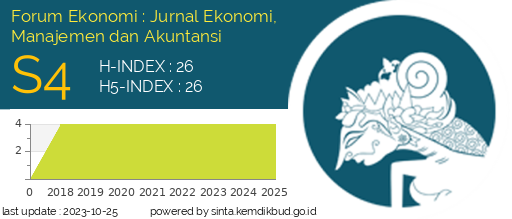The Linkage of Social Networks and Norms with the Sustainability of the Practice of “Marosok”
DOI:
https://doi.org/10.30872/jfor.v27i1/3521Keywords:
Culture, Social Networks, Norms, TransactionAbstract
In West Sumatra, "Marosok" is one of the traditional payment methods that is still in use. Finger signals are used to determine the price in this traditional way of buying and selling animals. The transaction takes place beneath a sheet of cloth. In light of this, the purpose of this study is to ascertain how social networks and norms relate to the sustainability of "Marosok" in West Sumatra's livestock purchasing and selling. Purposively selected, 30 respondents (10 farmers, 10 animal traders, and 10 intermediary traders) participated in this study. In order to compile the debate, the research methodology employed is Mixed Method Research, which blends quantitative and qualitative data. Data triangulation was used to examine qualitative data, and choreography was used to study quantitative data. The findings indicate a high linkage between the sustainability of "marosok" and social networks and norms. The findings of key informant interviews provide support for the data. Therefore, "marosok" is still being used in West Sumatra today. Cohesion between buyers, sellers, and middlemen in the purchase and sale of livestock is naturally formed by the application of "marosok," which preserves the value of customs. In the application of "marosok," communal norms are also strictly adhered to. This study can serve as a guide for the community to comprehend how trust-based business transactions between buyers and sellers could support general economic growth
References
Fadhilah, S. dan Dewi, E.A.S. 2017. Pola Komunikasi Tradisi Marosok Antara Sesama Penjual Dalam Budaya Minangkabau. Jurnal Kajian Komunikasi, 5(2), pp. 222–234.
Fatanti, M.N. dan Happy, N. 2019. Makna Kultural Tradisi Marosok. Jurnal ilmu komunikasi, 16(2), pp. 161–174.
Fauziah, N. 2015. Hubungan Modal Sosial Dengan Kesejahteraan Ekonomi Rumah Tangga Petani.
Ghozali, I. 2016. Aplikasi Analisis Multivariate dengan Program IBM SPSS 23. 8th edn. Semarang: Badan Penerbit Universitas Diponegoro.
Ghozali, I. 2018. Aplikasi Analisis Multizariate dengan Program IBM SPSS 24. Semarang: Badan Penerbit Universitas Diponegoro.
Kawulur, S. K., LS, B. O., & Loho, A. E. (2017). Modal Sosial Kelompok Tani “Citawaya” Di Desa Talikuran I, Kecamatan Sonder, Kabupaten Minahasa. AGRI-SOSIOEKONOMI, 13(3), 31-44.
Lwoga, E.T. and Lwoga, N.B. 2017. User acceptance of mobile payment: The effects of user-centric security, system characteristics and gender. Electronic Journal of Information Systems in Developing Countries, 81(1), pp. 1–24. Available at: https://doi.org/10.1002/j.1681-4835.2017.tb00595.x.
Madarisa, F. Edwardi. Armadiyan. Lazuardi. 2012. Potret Pasar Ternak Sumatera Barat. Jurnal Peternakan Indonesia, Oktober. 14(3).
Pranadji T. 2006. Penguatan Modal Sosial Untuk Pemberdayaan Masyarakat Pedesaan dalam Pengelolaan Agroekosistem Lahan Kering. Studi Kasus: Desa-desa (Hulu DAS) ex Proyek Bangunan Lahan Kering, Kabupaten Boyolali. Jurnal Agro Ekologi Vol. 24 No.2.
Regina. 2017. Tradisi Marosok Dalam Transaksi Jual Beli Ternak Di Pasar Ternak Kota Payakumbuh, Sumatera Barat. Jurnal Online Mahasiswa Fakultas Ilmu Sosial dan Ilmu Politik, 4(2), pp. 1–15.
Scott,William R.2000.Financial Accounting Theory.USA:Prentice-Hall
Sugiyono. 2014. Metode Penelitian Bisnis. Alfabeta, Bandung.
Sugiyono. 2016. Metode Penelitian Kombinasi (Mixed Methods). Jakarta: ALFABETA.
Zakaria, S. 2024. Pengantar teori ekonomi makro. Uwais Inspirasi Indonesia.
Downloads
Published
Issue
Section
License
Copyright (c) 2025 Cori Qamara, Aditya Alqamal Alianta, Hamdi Mayulu, Widiarta, Dede Aprylasari

This work is licensed under a Creative Commons Attribution-ShareAlike 4.0 International License.






